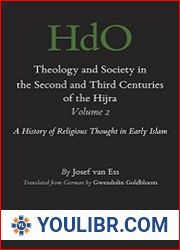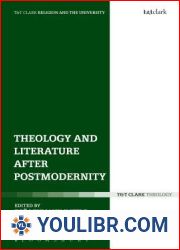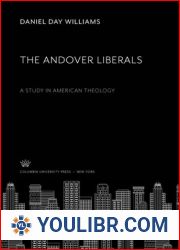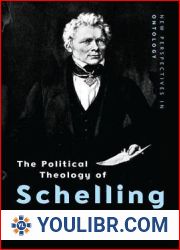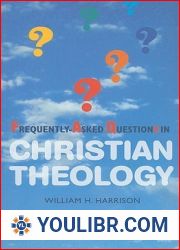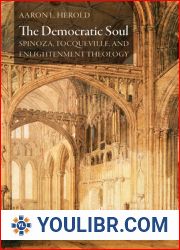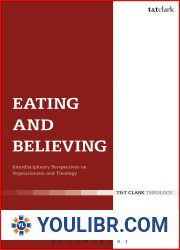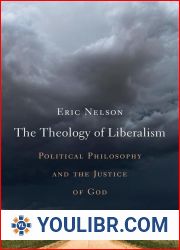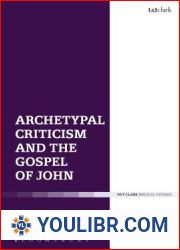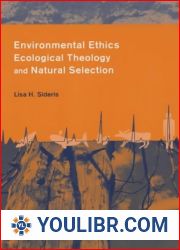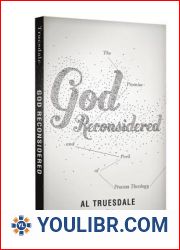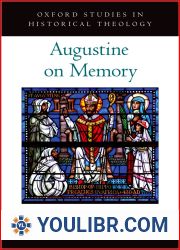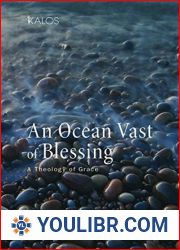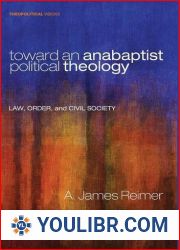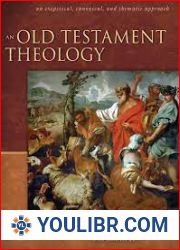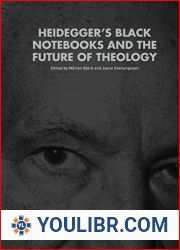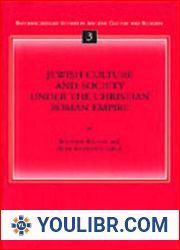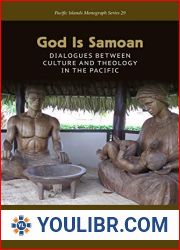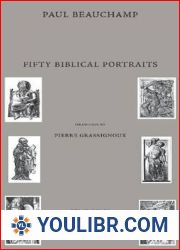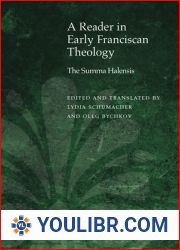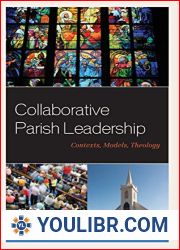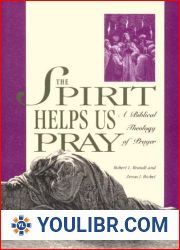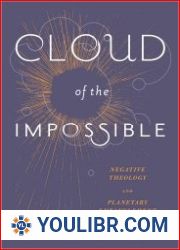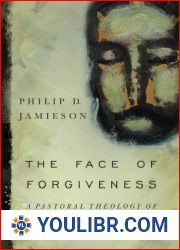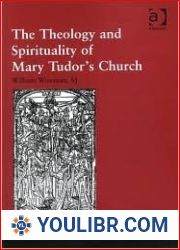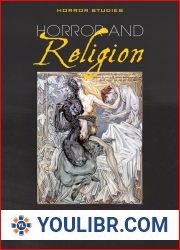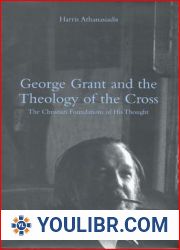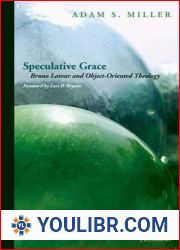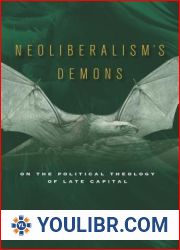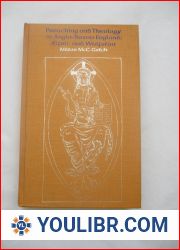
BOOKS - HISTORY - Theology and Society in the Second and Third Centuries of the Hijra...

Theology and Society in the Second and Third Centuries of the Hijra. Volume 1-4
Author: сборник
Year: 2017-2018
Format: PDF
File size: 14.9 MB
Language: ENG

Year: 2017-2018
Format: PDF
File size: 14.9 MB
Language: ENG

Theology and Society in the Second and Third Centuries of the Hijra Volume 14 In this volume, we explore the development of Islamic theology and society during the second and third centuries of the hijra (622-632 CE), a pivotal period in the formation of Islamic civilization. This era saw the emergence of key theological concepts, the establishment of the first Islamic institutions, and the evolution of Muslim societies. Our investigation delves into the lives and ideas of prominent theologians, scholars, and intellectuals of the time, offering insights into their contributions to the growth of Islamic thought and practice. The book begins by examining the historical context of the second and third centuries of the hijra, highlighting the political, social, and economic factors that shaped the development of Islamic theology. We then delve into the major theological debates of the era, including discussions around the nature of God, the role of reason in religious discourse, and the relationship between faith and action. Through an analysis of primary sources, such as hadiths (the sayings and actions of the Prophet Muhammad) and the works of influential theologians like Imam Ali and Ibn Sina, we gain a deeper understanding of the theological landscape of early Islam. As we explore the theological developments of this period, we also examine the impact of these ideas on Muslim society. We look at how theological debates influenced the formation of Islamic law, the role of women in society, and the development of religious practices like prayer and fasting. By studying the interplay between theology and society during this critical period, we gain a more nuanced understanding of the evolution of Islamic civilization.
Теология и общество во втором и третьем веках хиджры Том 14 В этом томе мы исследуем развитие исламской теологии и общества во втором и третьем веках хиджры (622-632 годы н. э.), ключевой период в становлении исламской цивилизации. Эта эпоха ознаменовалась появлением ключевых теологических концепций, созданием первых исламских институтов и эволюцией мусульманских обществ. Наше расследование углубляется в жизнь и идеи выдающихся богословов, ученых и интеллектуалов того времени, предлагая понимание их вклада в рост исламской мысли и практики. Книга начинается с изучения исторического контекста второго и третьего веков хиджры, подчеркивая политические, социальные и экономические факторы, которые сформировали развитие исламской теологии. Затем мы углубляемся в основные богословские дебаты эпохи, включая дискуссии о природе Бога, роли разума в религиозном дискурсе и взаимосвязи между верой и действием. Благодаря анализу первоисточников, таких как хадисы (изречения и действия пророка Мухаммеда) и труды влиятельных богословов, таких как имам Али и Ибн Сина, мы получаем более глубокое понимание богословского ландшафта раннего ислама. Исследуя теологические события этого периода, мы также изучаем влияние этих идей на мусульманское общество. Мы смотрим на то, как богословские дебаты повлияли на формирование исламского права, роль женщин в обществе и развитие религиозных практик, таких как молитва и пост. Изучая взаимодействие между теологией и обществом в этот критический период, мы получаем более тонкое понимание эволюции исламской цивилизации.
Théologie et société aux deuxième et troisième siècles de l'hégire Volume 14 Dans ce volume, nous examinons le développement de la théologie et de la société islamiques aux deuxième et troisième siècles de l'hégire (622-632 n. E.), une période clé dans l'émergence de la civilisation islamique. Cette époque a été marquée par l'émergence de concepts théologiques clés, la création des premières institutions islamiques et l'évolution des sociétés musulmanes. Notre enquête est approfondie dans la vie et les idées des théologiens, des scientifiques et des intellectuels exceptionnels de l'époque, offrant une compréhension de leur contribution à la croissance de la pensée et de la pratique islamiques. livre commence par une étude du contexte historique des deuxième et troisième siècles du hijra, en soulignant les facteurs politiques, sociaux et économiques qui ont façonné le développement de la théologie islamique. Ensuite, nous approfondirons les principaux débats théologiques de l'époque, y compris les discussions sur la nature de Dieu, le rôle de la raison dans le discours religieux et la relation entre la foi et l'action. Grâce à l'analyse de sources primaires telles que les hadiths (paroles et actions du prophète Mahomet) et les travaux de théologiens influents tels que l'imam Ali et Ibn na, nous obtenons une meilleure compréhension du paysage théologique de l'islam précoce. En examinant les événements théologiques de cette période, nous étudions également l'impact de ces idées sur la société musulmane. Nous examinons comment les débats théologiques ont influencé la formation de la loi islamique, le rôle des femmes dans la société et le développement des pratiques religieuses telles que la prière et le jeûne. En étudiant l'interaction entre la théologie et la société à cette période critique, nous avons une compréhension plus subtile de l'évolution de la civilisation islamique.
Teología y sociedad en los siglos II y III de la Hijra Tom 14 En este volumen exploramos el desarrollo de la teología y la sociedad islámica en los siglos II y III de la Hijra (622-632). e.), un período clave en la formación de la civilización islámica. Esta era estuvo marcada por la aparición de conceptos teológicos clave, la creación de las primeras instituciones islámicas y la evolución de las sociedades musulmanas. Nuestra investigación profundiza en las vidas e ideas de los teólogos, académicos e intelectuales destacados de la época, ofreciendo una comprensión de su contribución al crecimiento del pensamiento y la práctica islámica. libro comienza con el estudio del contexto histórico de los siglos II y III de la hijra, destacando los factores políticos, sociales y económicos que dieron forma al desarrollo de la teología islámica. Luego profundizamos en los principales debates teológicos de la época, incluyendo los debates sobre la naturaleza de Dios, el papel de la razón en el discurso religioso y la relación entre fe y acción. A través del análisis de fuentes originales como los hadices (dichos y acciones del profeta Mahoma) y los escritos de teólogos influyentes como Imam Ali e Ibn na, obtenemos una comprensión más profunda del paisaje teológico del islam primitivo. Al investigar los acontecimientos teológicos de este período, también estudiamos el impacto de estas ideas en la sociedad musulmana. Observamos cómo el debate teológico ha influido en la formación de la ley islámica, el papel de la mujer en la sociedad y el desarrollo de prácticas religiosas como la oración y el ayuno. Al estudiar la interacción entre la teología y la sociedad en este período crítico, obtenemos una comprensión más sutil de la evolución de la civilización islámica.
Teologia e sociedade nos séculos 2 e 3 do hijra Tom 14 Neste volume, exploramos o desenvolvimento da teologia islâmica e da sociedade nos séculos 2 e 3 do hijra (anos 622-632. C.), um período crucial no desenvolvimento da civilização islâmica. Esta era foi marcada pelo surgimento de conceitos teológicos fundamentais, pela criação das primeiras instituições islâmicas e pela evolução das sociedades muçulmanas. Nossa investigação está se aprofundando na vida e ideias de teólogos, cientistas e intelectuais ilustres da época, oferecendo compreensão de suas contribuições para o crescimento do pensamento e da prática islâmica. O livro começa com um estudo do contexto histórico do segundo e terceiro séculos da hijra, enfatizando os fatores políticos, sociais e econômicos que moldaram o desenvolvimento da teologia islâmica. Depois, nos aprofundamos no debate teológico básico da época, incluindo o debate sobre a natureza de Deus, o papel da razão no discurso religioso e a relação entre fé e ação. Através da análise de fontes primárias, tais como os khadis (falas e acções do profeta Maomé) e o trabalho de teólogos poderosos, como o imã Ali e Ibn Xin, temos uma compreensão mais profunda da paisagem teológica do Islã inicial. Ao pesquisar os acontecimentos teológicos deste período, também estudamos a influência dessas ideias na sociedade muçulmana. Estamos a ver como o debate teológico influenciou a formação da lei islâmica, o papel das mulheres na sociedade e o desenvolvimento de práticas religiosas, como oração e pós. Ao estudar a interação entre a teologia e a sociedade neste período crítico, temos uma compreensão mais sutil da evolução da civilização islâmica.
Teologia e società nel secondo e terzo secolo hijra Volume 14 In questo volume esploriamo lo sviluppo della teologia islamica e della società nel secondo e terzo secolo hijra (622-632. C.), un periodo chiave per la civiltà islamica. Questa era è stata segnata dalla nascita di concetti teologici chiave, dalla creazione delle prime istituzioni islamiche e dall'evoluzione delle società musulmane. La nostra indagine sta approfondendo la vita e le idee di illustri teologi, scienziati e intellettuali dell'epoca, offrendo una comprensione del loro contributo alla crescita del pensiero e delle pratiche islamiche. Il libro inizia esplorando il contesto storico del secondo e terzo secolo di hijra, sottolineando i fattori politici, sociali ed economici che hanno formato lo sviluppo della teologia islamica. Poi ci approfondiamo nel dibattito teologico di base dell'epoca, inclusi i dibattiti sulla natura di Dio, il ruolo della mente nel discorso religioso e la relazione tra fede e azione. Analizzando le sorgenti primitive, come i Hadis (i discorsi e le azioni del profeta Maometto) e il lavoro di teologi influenti come l'imam Ali e Ibn Xin, otteniamo una maggiore comprensione del panorama teologico dell'Islam precoce. Esplorando gli eventi teologici di questo periodo, studiamo anche l'impatto di queste idee sulla società musulmana. Osserviamo come il dibattito teologico abbia influenzato la formazione del diritto islamico, il ruolo delle donne nella società e lo sviluppo di pratiche religiose come la preghiera e il digiuno. Studiando l'interazione tra teologia e società in questo periodo critico, otteniamo una maggiore comprensione dell'evoluzione della civiltà islamica.
Theologie und Gesellschaft im zweiten und dritten Jahrhundert der Hidschra Band 14 In diesem Band untersuchen wir die Entwicklung der islamischen Theologie und Gesellschaft im zweiten und dritten Jahrhundert der Hidschra (622-632 n. Chr.) e.), eine Schlüsselperiode in der Bildung der islamischen Zivilisation. Diese Ära war geprägt von der Entstehung wichtiger theologischer Konzepte, der Schaffung der ersten islamischen Institutionen und der Entwicklung muslimischer Gesellschaften. Unsere Untersuchung vertieft sich in das ben und die Ideen der herausragenden Theologen, Wissenschaftler und Intellektuellen der Zeit und bietet Einblicke in ihren Beitrag zum Wachstum des islamischen Denkens und der islamischen Praxis. Das Buch beginnt mit einer Untersuchung des historischen Kontextes des zweiten und dritten Jahrhunderts der Hidschra und betont die politischen, sozialen und wirtschaftlichen Faktoren, die die Entwicklung der islamischen Theologie geprägt haben. Dann tauchen wir in die wichtigsten theologischen Debatten der Epoche ein, einschließlich Diskussionen über die Natur Gottes, die Rolle der Vernunft im religiösen Diskurs und die Beziehung zwischen Glauben und Handeln. Durch die Analyse von Primärquellen wie Hadithen (Sprüche und Handlungen des Propheten Mohammed) und Schriften einflussreicher Theologen wie Imam Ali und Ibn na gewinnen wir ein tieferes Verständnis der theologischen Landschaft des frühen Islam. Indem wir die theologischen Entwicklungen dieser Zeit untersuchen, untersuchen wir auch die Auswirkungen dieser Ideen auf die muslimische Gesellschaft. Wir untersuchen, wie theologische Debatten die Bildung des islamischen Rechts, die Rolle der Frauen in der Gesellschaft und die Entwicklung religiöser Praktiken wie Gebet und Fasten beeinflusst haben. Durch das Studium der Interaktion zwischen Theologie und Gesellschaft in dieser kritischen Zeit erhalten wir ein differenzierteres Verständnis der Entwicklung der islamischen Zivilisation.
Teologia i Społeczeństwo w II i III wieku A.H. Tom 14 W tym tomie badamy rozwój teologii islamskiej i społeczeństwa w II i III wieku A.H. (622-632 CE). e.), kluczowy okres w tworzeniu cywilizacji islamskiej. Epoka ta była naznaczona pojawieniem się kluczowych koncepcji teologicznych, tworzeniem pierwszych instytucji islamskich oraz ewolucją społeczeństw muzułmańskich. Nasze śledztwo zagłębia się w życie i idee wybitnych teologów, uczonych i intelektualistów tamtych czasów, oferując wgląd w ich wkład w rozwój myśli i praktyki islamskiej. Książka rozpoczyna się od zbadania kontekstu historycznego II i III wieku hidżry, podkreślając czynniki polityczne, społeczne i gospodarcze, które kształtowały rozwój teologii islamskiej. Następnie zagłębiamy się w główne debaty teologiczne epoki, w tym dyskusje na temat natury Boga, roli rozumu w dyskursie religijnym oraz relacji między wiarą a działaniem. Poprzez analizę podstawowych źródeł, takich jak hadisy (wypowiedzi i działania Proroka Mahometa) i pisma wpływowych teologów, takich jak Imam Ali i Ibn na, zyskujemy głębsze zrozumienie teologicznego krajobrazu wczesnego islamu. Badając wydarzenia teologiczne tego okresu, badamy również wpływ tych idei na społeczeństwo muzułmańskie. Analizujemy, jak debata teologiczna wpłynęła na kształtowanie się prawa islamskiego, rolę kobiet w społeczeństwie oraz rozwój praktyk religijnych, takich jak modlitwa i post. Badając interakcje między teologią a społeczeństwem w tym krytycznym okresie, zyskujemy bardziej zniuansowane zrozumienie ewolucji cywilizacji islamskiej.
''
İkinci ve Üçüncü Yüzyıllarda İlahiyat ve Toplum A.H. Cilt 14 Bu ciltte, İslam teolojisinin ve toplumunun İkinci ve Üçüncü Yüzyıllarda A.H. (622-632 CE) gelişimini inceliyoruz. e.), İslam medeniyetinin oluşumunda önemli bir dönem. Bu dönem, temel teolojik kavramların ortaya çıkması, ilk İslami kurumların oluşturulması ve Müslüman toplumların evrimi ile işaretlendi. Araştırmamız, zamanın önde gelen ilahiyatçılarının, alimlerinin ve entelektüellerinin yaşamlarını ve fikirlerini inceler ve İslami düşünce ve pratiğin büyümesine katkılarına dair fikir verir. Kitap, hicretin ikinci ve üçüncü yüzyıllarının tarihsel bağlamını inceleyerek, İslam teolojisinin gelişimini şekillendiren siyasi, sosyal ve ekonomik faktörleri vurgulayarak başlıyor. Daha sonra, Tanrı'nın doğası, dini söylemde aklın rolü ve inanç ile eylem arasındaki ilişki hakkındaki tartışmalar da dahil olmak üzere, dönemin başlıca teolojik tartışmalarını inceliyoruz. Hadisler (Hz. Muhammed'in sözleri ve eylemleri) gibi birincil kaynakların ve İmam Ali ve İbn na gibi etkili ilahiyatçıların yazılarının analiziyle, erken İslam'ın teolojik manzarasını daha iyi anlıyoruz. Bu dönemin teolojik olaylarını incelerken, bu fikirlerin Müslüman toplum üzerindeki etkisini de inceliyoruz. Teolojik tartışmaların İslam hukukunun oluşumunu, kadının toplumdaki rolünü ve namaz ve oruç gibi dini uygulamaların gelişimini nasıl etkilediğine bakıyoruz. Bu kritik dönemde ilahiyat ve toplum arasındaki etkileşimi inceleyerek, İslam medeniyetinin evrimi hakkında daha ayrıntılı bir anlayış kazanırız.
اللاهوت والمجتمع في القرنين الثاني والثالث هـ المجلد 14 في هذا المجلد، ندرس تطور اللاهوت الإسلامي والمجتمع الإسلامي في القرنين الثاني والثالث الهجريين (622-632 م). (هـ)، وهي فترة رئيسية في تشكيل الحضارة الإسلامية. تميزت هذه الحقبة بظهور مفاهيم لاهوتية رئيسية، وإنشاء المؤسسات الإسلامية الأولى، وتطور المجتمعات الإسلامية. يتعمق تحقيقنا في حياة وأفكار علماء اللاهوت والعلماء والمثقفين البارزين في ذلك الوقت، ويقدم نظرة ثاقبة لمساهماتهم في نمو الفكر والممارسة الإسلامية. يبدأ الكتاب بفحص السياق التاريخي للقرنين الثاني والثالث من الهجرة، مع تسليط الضوء على العوامل السياسية والاجتماعية والاقتصادية التي شكلت تطور اللاهوت الإسلامي. ثم نتعمق في المناقشات اللاهوتية الرئيسية في ذلك العصر، بما في ذلك المناقشات حول طبيعة الله، ودور العقل في الخطاب الديني، والعلاقة بين الإيمان والعمل. من خلال تحليل المصادر الأساسية مثل الأحاديث (أقوال وأفعال النبي محمد) وكتابات اللاهوتيين المؤثرين مثل الإمام علي وابن سينا، نكتسب فهمًا أعمق للمشهد اللاهوتي للإسلام المبكر. عند استكشاف الأحداث اللاهوتية في هذه الفترة، ندرس أيضًا تأثير هذه الأفكار على المجتمع الإسلامي. نحن ننظر في كيفية تأثير الجدل اللاهوتي على تكوين الشريعة الإسلامية، ودور المرأة في المجتمع، وتطوير الممارسات الدينية مثل الصلاة والصيام. من خلال دراسة التفاعل بين اللاهوت والمجتمع خلال هذه الفترة الحرجة، نكتسب فهمًا أكثر دقة لتطور الحضارة الإسلامية.
2 세기와 3 세기의 신학과 사회 A.H. 제 14 권에서, 우리는 2 세기와 3 세기 A.H. (622-632 CE) 의 이슬람 신학과 사회의 발전을 조사합니다. e.), 이슬람 문명 형성의 핵심 기간. 이 시대는 주요 신학 적 개념의 출현, 최초의 이슬람 제도의 창설, 무슬림 사회의 진화로 두드러졌다. 우리의 조사는 당시 저명한 신학자, 학자 및 지식인의 삶과 아이디어를 탐구하여 이슬람 사상과 실천의 성장에 대한 그들의 기여에 대한 통찰력을 제공합니다. 이 책은 이슬람 신학의 발전을 형성 한 정치적, 사회적, 경제적 요인을 강조하면서 히즈라의 2 세기와 3 세기의 역사적 맥락을 조사하는 것으로 시작됩니다. 그런 다음 하나님의 본질, 종교 담론에서 이성의 역할, 신앙과 행동의 관계에 대한 토론을 포함하여 시대의 주요 신학 적 논쟁을 탐구합니다. hadiths (예언자 Muhammad의 말과 행동) 와 같은 주요 출처의 분석과 Imam Ali 및 Ibn na와 같은 영향력있는 신학자의 저술을 통해 초기 이슬람의 신학 적 풍경에 대한 깊은 이해를 얻습니다. 이시기의 신학 적 사건을 탐구하면서, 우리는 또한 이러한 아이디어가 무슬림 사회에 미치는 영향을 조사합니다 우리는 신학 적 논쟁이 이슬람 법의 형성, 사회에서 여성의 역할, 기도와 금식과 같은 종교적 관행의 발전에 어떤 영향을 미쳤는지 살펴 봅니다. 이 중요한시기에 신학과 사회의 상호 작용을 연구함으로써 우리는 이슬람 문명의 진화에 대한 미묘한 이해를 얻습니다.
回歷二、三世紀的神學與社會第14卷本卷探討回歷二、三世紀(公元622-632)伊斯蘭神學與社會的發展。e.),伊斯蘭文明形成的關鍵時期。這個時代的特點是關鍵神學概念的出現,第一個伊斯蘭機構的建立以及穆斯林社會的演變。我們的調查深入探討了當時傑出的神學家,學者和知識分子的生活和思想,提供了他們對伊斯蘭思想和實踐發展的貢獻的見解。該書首先研究了回教二世紀和第三世紀的歷史背景,強調了影響伊斯蘭神學發展的政治,社會和經濟因素。然後,我們將深入探討那個時代的主要神學辯論,包括有關上帝的本質,理性在宗教話語中的作用以及信仰與行為之間的關系。通過對聖訓(先知穆罕默德的格言和行動)等主要來源的分析,以及伊瑪目阿裏和伊本·辛等有影響力的神學家的著作,我們可以更好地了解早期伊斯蘭教的神學景觀。在研究這一時期的神學事件時,我們還研究了這些思想對穆斯林社會的影響。我們研究神學辯論如何影響伊斯蘭法律的形成,婦女在社會中的作用以及祈禱和禁食等宗教實踐的發展。通過在這個關鍵時期研究神學與社會之間的相互作用,我們可以更深入地了解伊斯蘭文明的發展。







